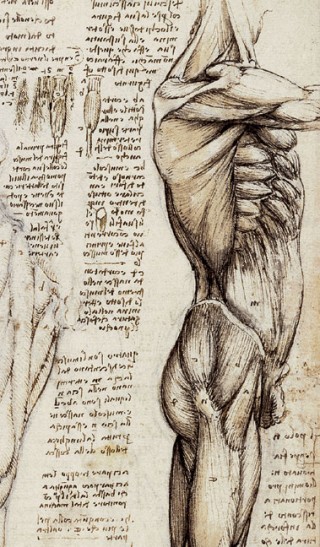Reflections on residency thus far…
February 2, 2011 6 Comments
To assume that residency can be explained fully to one who has not experienced it in its entirety is naïve. It is almost a living thing – changeable, ravishing. It is a path forged through jungles which holds mystery even after the turns, trials, and tribulations have been fully exposed. As residents, we take photographs along the way to capture moments of progress, anger, fear, frustration – but only in retrospect, and perhaps not even then, it is possible to understand which moments will become significant. Why are there patients whose brief encounters are vivid to me still, while others have simply faded from my memory? How is it that I can paint with certainty the eyelids, the fingers, and the nose structure of my first cadaver from six years ago, but that I can now say so little about the eyelids, fingers, and noses of my patients? I can remember the face, tanned, broad, with graying eyebrows, of the woman whom I first declared dead. But I cannot remember the faces of any of the others who followed. They blur together – a swarm of people whom I have watched depart from this world. Strangers, patients, bodies in stretchers – but not faces.
Surviving residency means learning to look away. Or, more precisely, learning to see through the very elements of life – and death – which used to stop us in our tracks. Writing has revealed to me how muddled – and how out of our control – this process is. I have learned to listen clinically – I have learned to listen to the words that will save me time later, that will clinch the diagnosis, so that I might have a minute to steal five minutes of sleep or a slice of sustenance. And, sadly, I have learned to discard all the other pieces of a patient’s story. The details of their personal lives have become meaningless to me – even troublesome for my primary tasks, efficiency and depersonalization.
Medicine practiced in this manner draws me farther away from my writing faculties – and my sensitivities – than I have realized. The process of depersonalization is far more amenable to cartoon drawing or improv comedy than it is to writing – something light, humorous, distant. My art and writing have become vapid. I can observe, but with strict limitations and great distance. I have skillfully walled off the emotions of my patients. In the last two years, in spite of all the tragedy I have faced, I have not shed a single tear for a patient. I wonder why.
There is an unspoken culture in medicine that it is cowardly to break down on the job. It is cowardly, in fact, to personalize the emotions of our patients enough so that it affects our performance. We are expected to rise “above this,” if you will – to be objective, discerning physicians. And I have done exactly this, with raving reviews from my superiors. But it makes me concerned that there is something missing. Perhaps taking care of such sick patients should not be so easy.
This is why illness close to residents – among ourselves, our friends, and our families – hits us so hard. It is not merely the illness itself, but all the implications that come along with it. In spite of our adept skills, it is far more difficult to depersonalize the illness of a loved one than of a stranger. These situations create a dichotomy in our minds – in order to perform our day-to-day tasks, we almost need to believe we are invincible. But when those around us fall, we must accept – even if briefly – the reality that we are not.
I am not sure what the solution is. With the demanding hours of this training, and the way residency – a living, breathing being – devours our lives, takes from us any ounces of energy which we may have remaining, brings us into the void of the hospital in all its intensity – I am not sure how we can open ourselves up to this, emotionally, and survive it. And so, at least for now, we do not.
I watch my fellow residents. We walk around this hospital like zombies, more absent then present. I can only wonder how we will emerge from this – as alienated as we are now, or will we regain some sense of warped humanity after all of this is over… Only time will tell.



I have just finished reading all of the previous blogs and I am overwhelmed by your honesty, dedication and insight. Your writing is beautiful and I have learned so much from all of the topics you have discussed. Thank you so much.
I have spent several hours reading your accounts of your journey and have found it to be deeply moving and inspiring. Not only do you write beautifully and with insight and honesty it is evident that you are a caring and compassionate doctor. Thank you for sharing your personal learning and experiences.
You’re an amazing writer.
I find this information very disturbing and disheartening. Is there nowhere a resident, a doctor-in-training can go to learn how to UN-desensitize? Is compassion and sympathuy and taking a second to actually KNOW your patient thought so insignificant that it is discouraged? As a patient I am aware of the many “just the facts, ‘mam” docs are out there. I make it a practice to interview each and every doc I may be in the need of. If they are cold and impersonal and rush me and my feelings away, it is so long, farewell…..After my sister and I were diagnosed with cancer (I in Boston, she in San Francsico) and going through treatments, we decided that the inhuman way cancer patients in particular, but patients in general are treated. The fact that the hospital gown is the “great equalizer” in the equation bothered the hell out of us. Wearing such a thing puts you in a class of defective people, whereas those taking care of you are the heroes, the ones in the white coats, the great Poo-Bahs of the world. We decided to take matters in our own hands, started a company whose mission is to enhance the environment in which people are asked to heal and recover. To that end we have re-designed and manufacture garments we call Healing Threads. These are alternatives, what we call Recovery Wear. People purchase via the Internet for themselves or a loved one. They bring them to the hospital and doc appts so they never have to wear those de-humanizing, everyone-looks-the-same standard hospital gowns. Our Healing Threads give people dignity and modesty and empowerment. Wearing one encourages people to ask that question, voice an opinion, become PART of their disease, not an unwilling participant. In order to heal people must OWN their disease.
The hospital gown is one way the medical profession can keep their patients at arm’s length, another way is to train people such as yourselves that the patient is just a series of body parts and that one patient’s story is as troublesome and insignificant as the next. How sad. How glad I am that I have found a number of docs who really care about me as a person, knowing that not only is my body invloved in my disease, but my mind and spirit are an integral part of the equation. I pray that there are more docs in training out there like my docs and less like you.
Dear Peg,
I had not heard of Healing Threads before you wrote, but what a wonderful idea. Having been a patient myself both before and during residency, I can only say that it is a humbling experience, to say the least. Only as a patient does one realize what it means to be a patient – one must live through it. I hope that your idea spreads. And I do think even a small reminder like this – patients wearing something different than what physicians are used to seeing – is enough to change people’s perceptions.
As for your first question, I am not sure about the answer. Different hospitals are starting workshops to get residents to open up about their feelings. This, I believe, is very important. But practically speaking, residents often simply don’t have time to cry in the hospital – in the midst of an emotionally charged encounter, we are paged off somewhere else to deal with another crisis. And after that, we are paged again. The sheer hours and intensity of the job make it difficult to process things emotionally in real time, as they are happening. Sometimes this forces us simply to “keep on keeping on,” if you will, at least on the job. Fortunately, I think many people struggle with this during residency but find the time and the energy to regain compassion during their career. After all, compassion is what brought us to health care in the first place – we should not forget that.
I hope and pray that all you residents DO find the time to bring compassion and empathy into your dealings with your patients once you have survived the rigors of residency. I shudder to think that the “keep on keepin on” attitude would be the norm rather than the exception after residency!
It is your mouth to God’s ear that our Healing Threads will change people’s perceptions of what it is like to be a patient! It is not just the body involved in healing, it is the mind and spirit as well. Remember that please. Best of luck to you in your career as a healer.